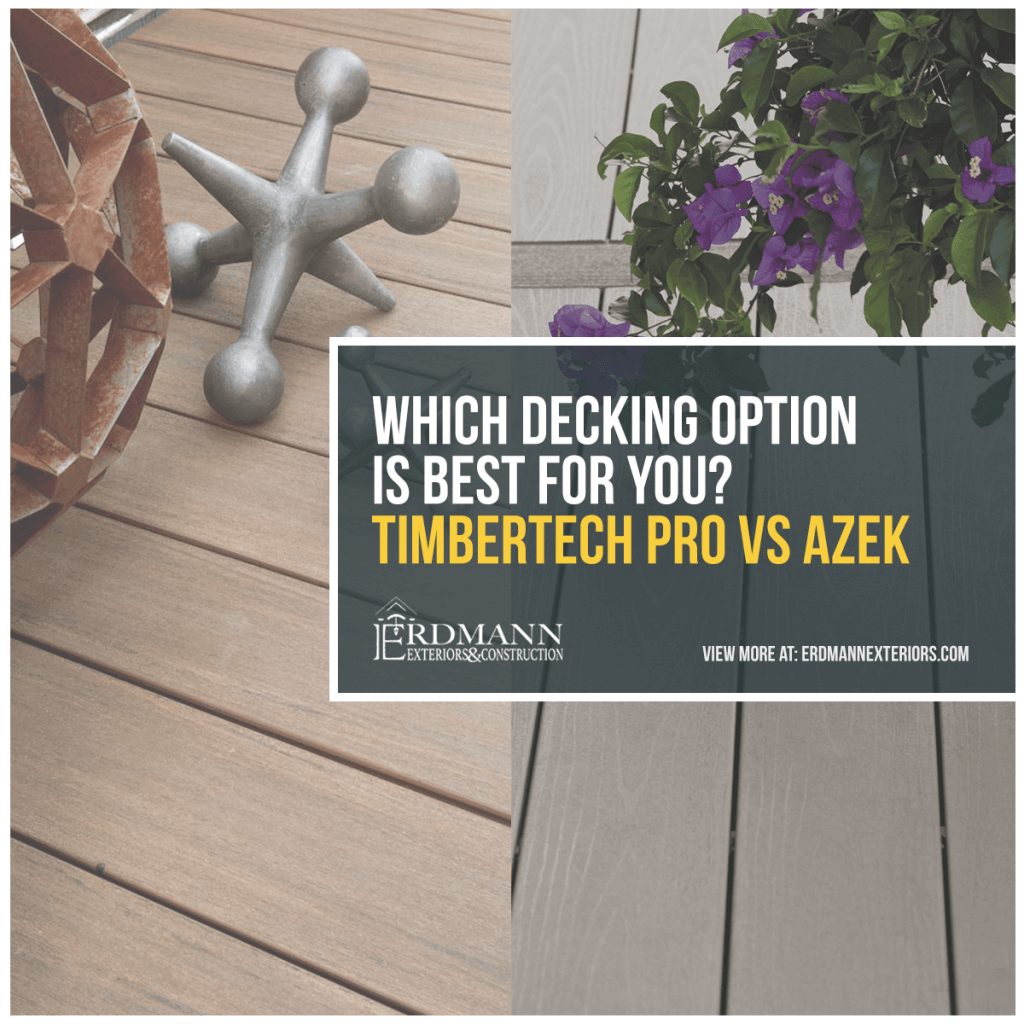
There’s a lot to love about TimberTech decking products. They’re durable and practically maintenance-free (we say practically, because let’s be honest, everything needs some kind of maintenance. In the case of Timbertech, it’s usually nothing more strenuous than a simple hosing every spring), and are backed by extraordinary warranties. There’s no question that Timbertech is a brand you can trust and is full of products that will beautify your home exterior, the question is which TimberTech product is best for your home and your decking needs?
We can’t answer that for you. In fact, we can’t decide it for ourselves! That’s why we offer our customers their choice of Timbertech PRO composite decking or Timbertech Azek PVC decking. In this blog post we’ll take a look at each of these products so you can learn a little more about them and decide which is the best choice for your decking project.
Composite Vs. PVC Decking
The biggest difference between Timbertech Pro and Timbertech Azek products is the material each is made of. Timbertech Pro is a composite product while Azek is a PVC product. Although similar, there are a few differences in these two materials that may be important to you.
Composite Decking
Composite decking has been around since the 1990’s and it’s become increasingly popular since that time. Composite deck boards are made from a combination of wood fiber and recycled plastic. In addition to its’ easy-case, low-maintenance benefits, composite is a popular choice with homeowners who are looking for eco-conscious materials since it can be made using wood dust, shavings and other wood waste products as well as recycled plastic content.
Composite deck boards are:
- Solid color all the way through
- Can span longer distances than PVC boards
- San be less slippery than PVC when wet
- Easily shaped and routed to create curves and bends
- More closely resembles natural wood than PVC
PVC Decking
PVC is short for polyvinyl chloride – or plastics. TimberTech’s Azek PVC decking is made from recycled plastics, boosting its’ eco-conscious value. The primary benefit of PVC over composite is the lack of wood. No wood means no mold or mildew, which supports longevity and reduces maintenance needs. PVC is harder and more scratch resistant than composite products and holds its color very well since the color is embedded in the plastic, not applied on top.
PVC deck boards are:
- Strong and resistant to scratches, dents, and stains
- Colorfast and fade-resistant
- Exceptional moisture-resistance
- More variety in wood colors, tones, and textures than composite
- Looks less like wood than composite
Timbertech Pro vs. Azek Decking
Now that we’ve looked at the basics of composite and PVC decking products, we can take a closer look at Timbertech Pro vs. Azek decking. Both products are “capped”, which means the ends are covered by an added layer of protection to prevent moisture intrusion. This helps prevent mold and mildew from taking hold as well as product contraction and expansion.
Timbertech Pro Composite boards provide 4-sided protection from the elements and include a 30-Year Fade & Stain and 30-Year Limited Structural warranty on residential applications. It is low-maintenance, stain and moisture resistant, and won’t splinter, crack, or warp. Timbertech Pro is available in 3 Collections: Terrain, Tropical, and Legacy all of which feature wood-grain patterns and a variety of modern colors to complement any home exterior. Boards are available in scalloped and full profile designs to meet multiple use needs.
Azek PVC decking is a top-of-the-line PVC product and Timbertech knows it. The company backs this product with a 50-Year Fade & Stain warranty and a lifetime structural warranty for residential applications. It is equal to Timbertech Pro in terms of maintenance demands and stain resistance, but pulls slightly ahead in terms of moisture resistance and fade-resistance thanks to the lack of wood in the material. The line contains 4 Collections: Harvest, Arbor, Vintage, and Porch with varying degrees of wood grain patterns and textures. All boards are full or solid in profile, making this a strong, but heavy product.
Finally, we come to cost. In general composite decking is less expensive than PVC decking and these two products support that observation with Timbertech Pro typically being less expensive than Azek. However, the final cost of the deck is dependent on multiple factors including the complexity of the design and which specific Pro or Azek product is chosen.
The best way to determine which decking is right for you is to schedule a free, at-home consultation with Erdmann Exteriors. We’ll bring product samples so you can see the differences and similarities for yourself, take measurements, and discuss design options so we can provide you with an accurate cost comparison of the two products.
Subscribe to Erdmann Outdoor Living's Blog






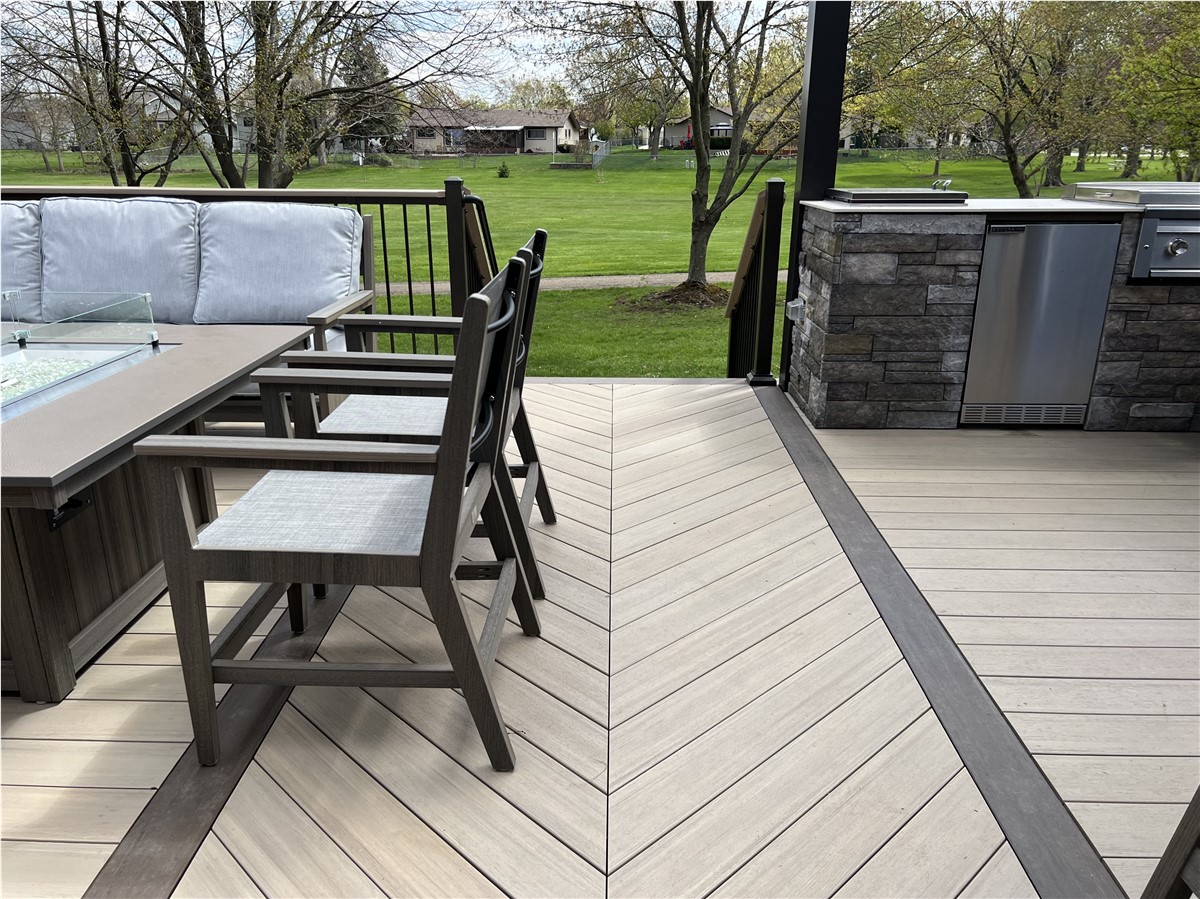
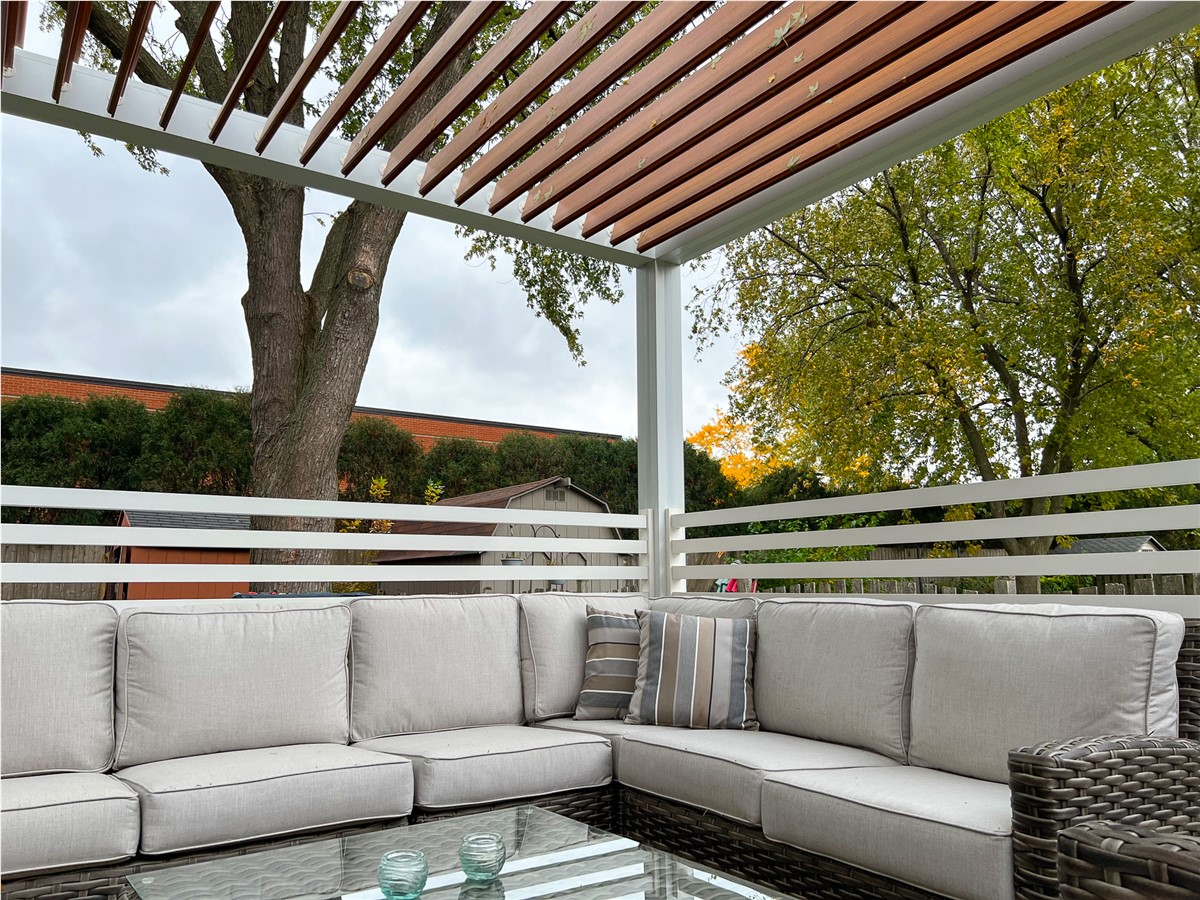
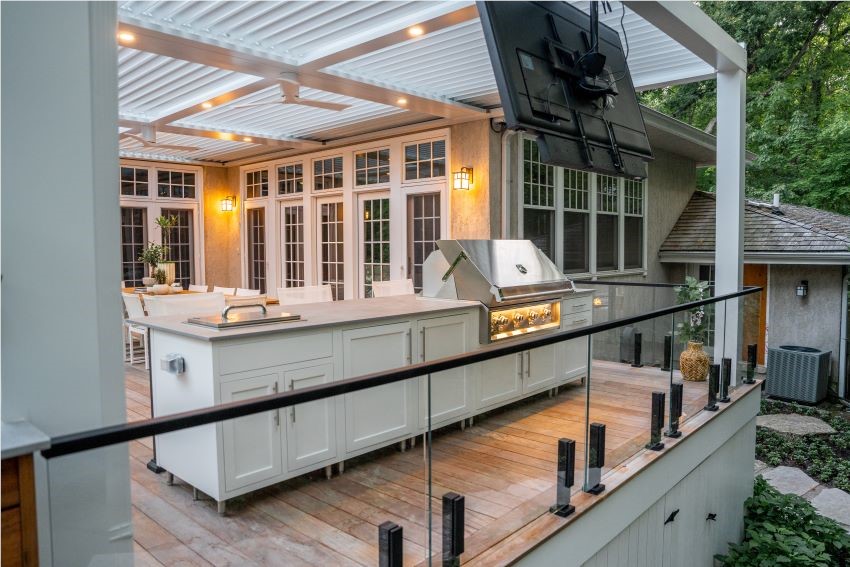
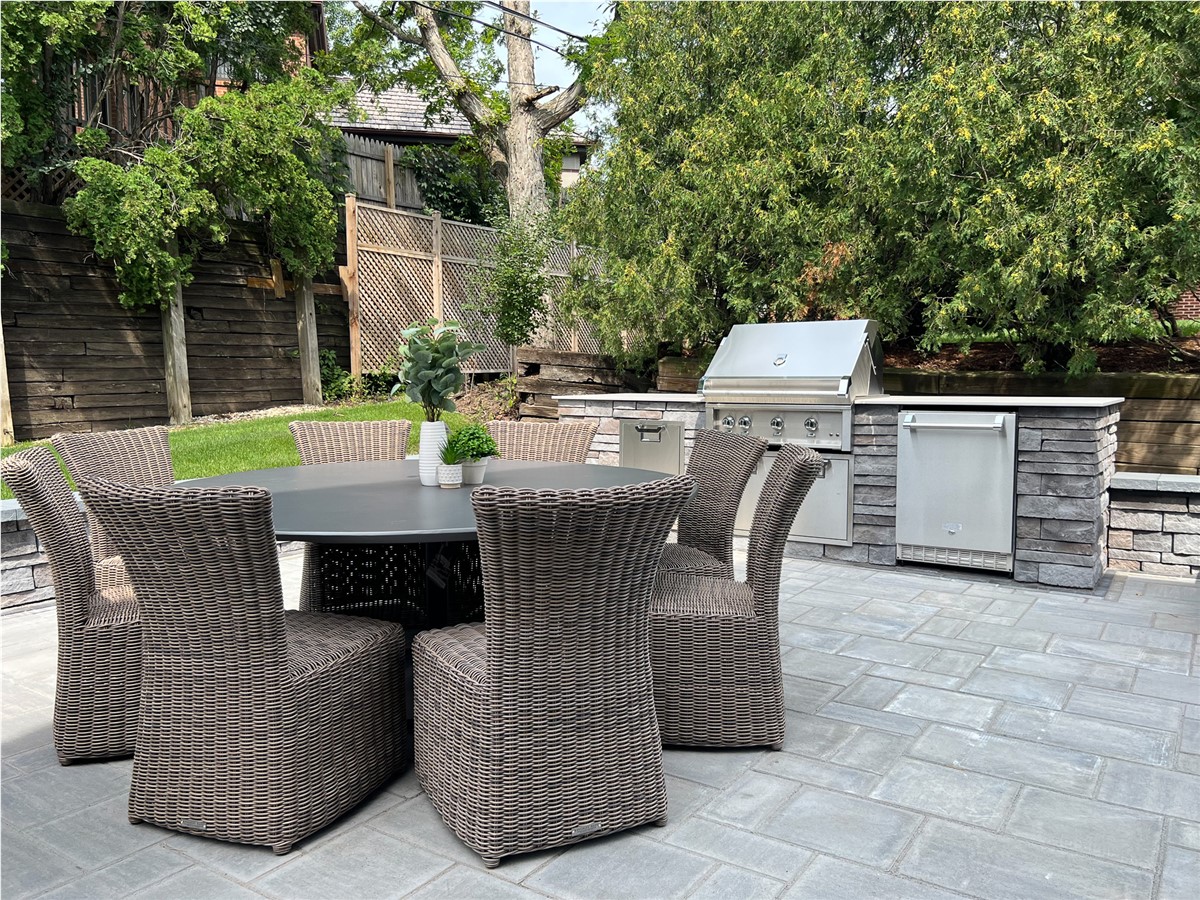
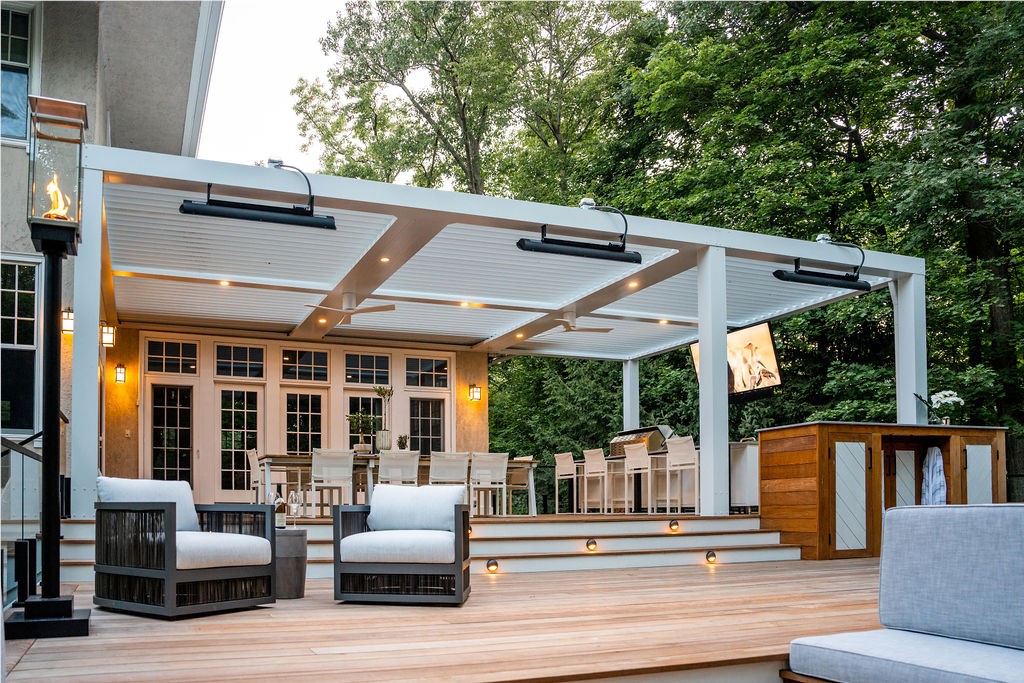

Comments